Casa Yangoe helps satisfy Cuenca’s growing demand for organic food and offers space for artisans too
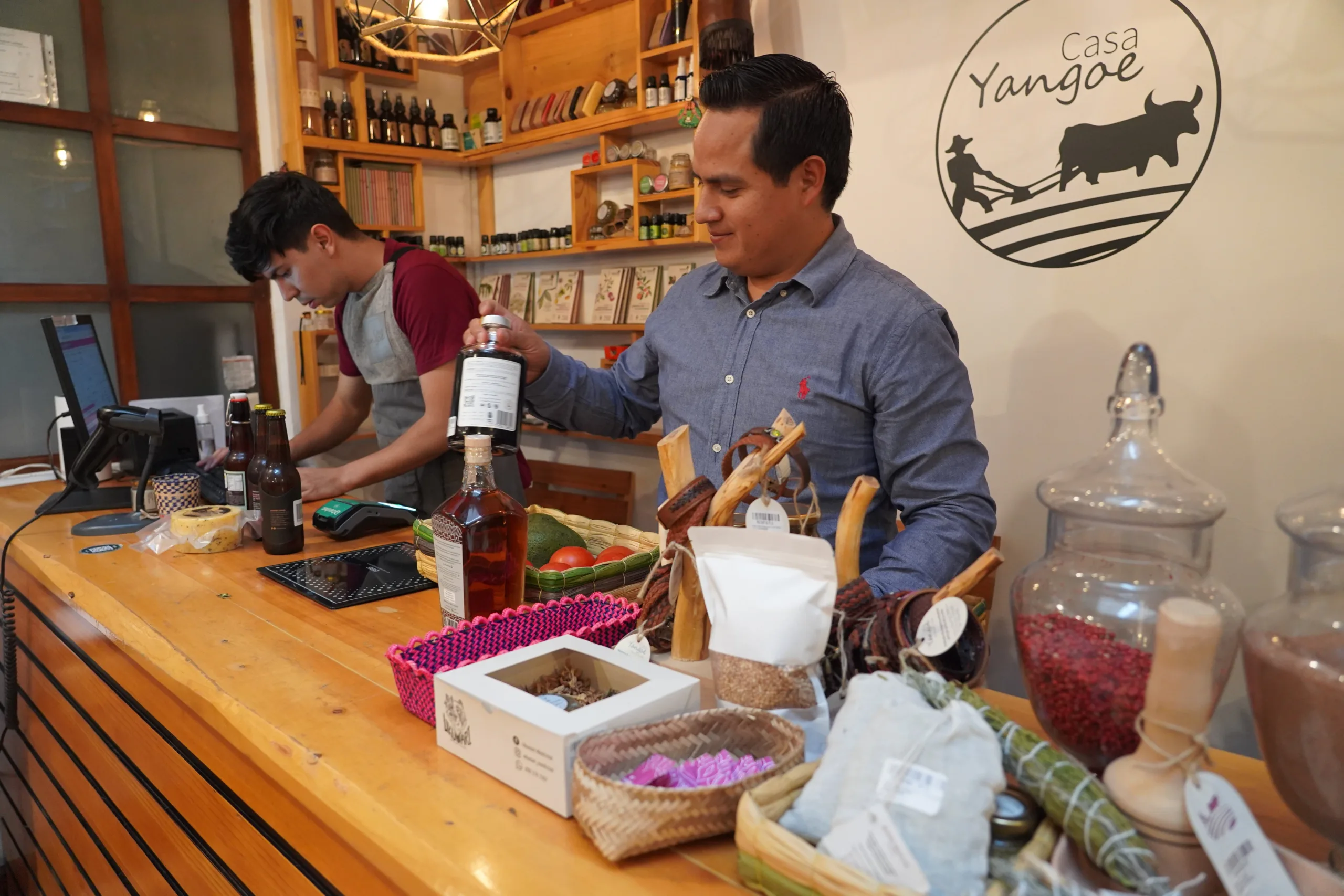
There is a good chance you will find José Arias Ochoa helping you out with your purchase.
By Stephen Vargha
The global organic food market was valued at $227.5 billion in 2023. And it is expected to reach $785.5 billion in ten years, according to a research report published by Spherical Insights & Consulting.
Casa Yangoe, on Benigno Malo near Calle Larga in El Centro, is doing its part for the organic food market.
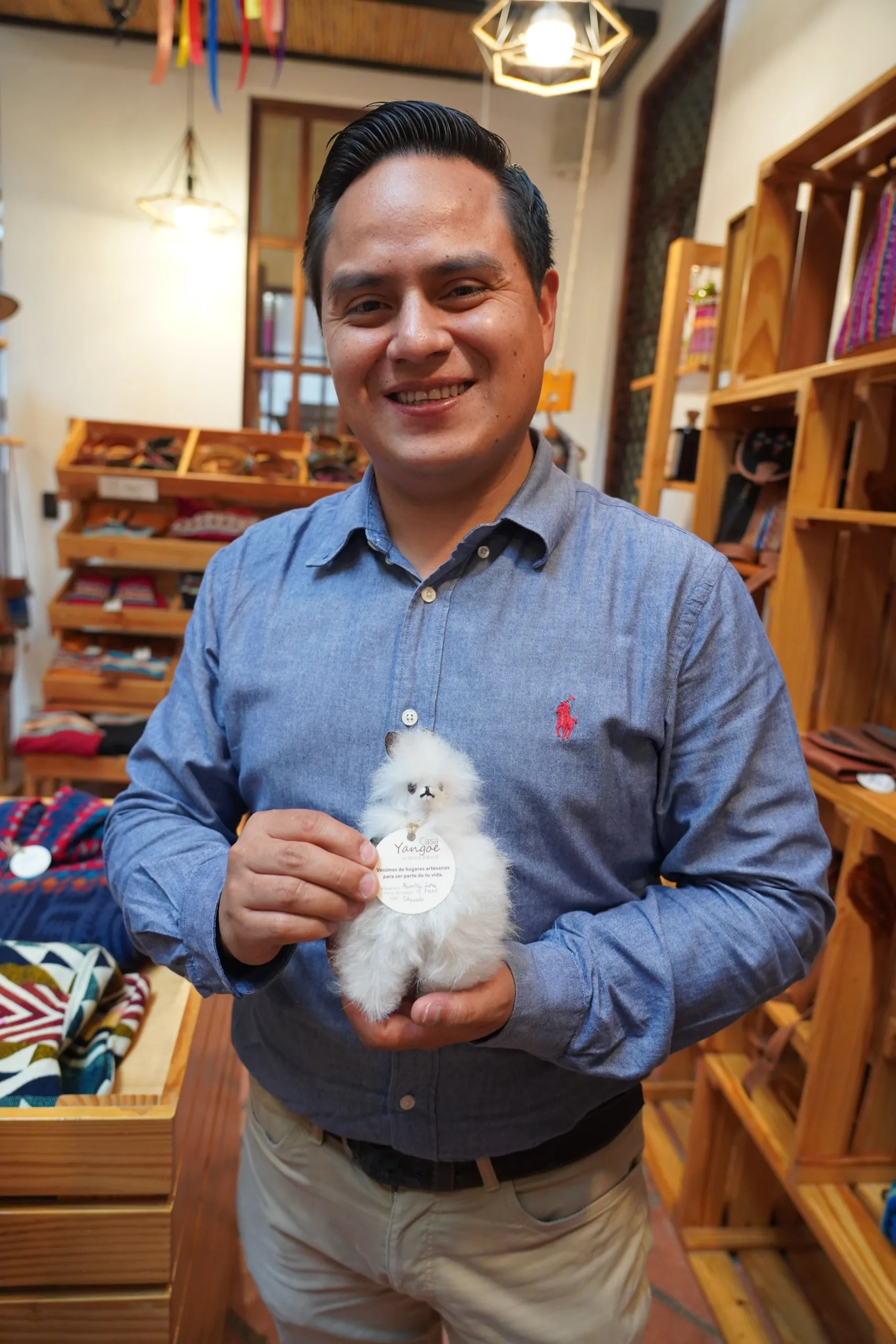
Owner and manager José Arias Ochoa proudly shows one of his store’s artisan products.
“We started our family farm, Finca La Clem, in Pichincha province eight years ago,” said José Arias Ochoa. “It started with organic lemons and avocados, which we sold at a mercado in Quito.”
Arias, 33, is the youngest of three brothers. He manages Casa Yangoe, the family store and restaurant.
“Because people were hesitant to pay the price for organic food, my oldest brother, Juan, told me to start our own local market in front of the family furniture store in Quito,” said Arias. “It was a temporary thing as it was set up under a tent.”
The family decided to set up a permanent market in Cuenca. It was an easy decision where to put it as the family owned a patrimonial building on Benigno Malo.
“This is my mother’s house,” said Arias. “We used to sell furniture here before it was Casa Yangoe.”
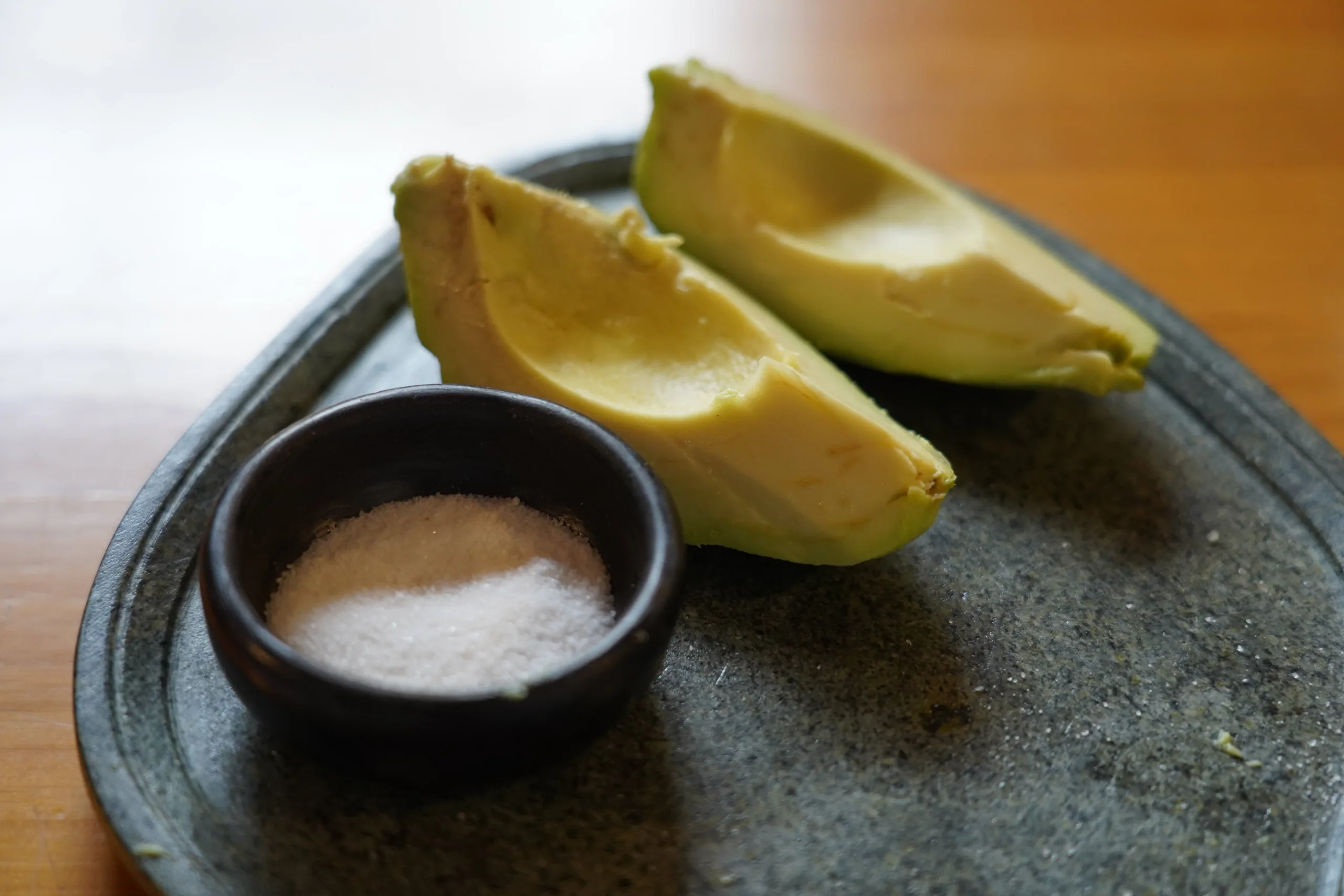
Delicious organic avocados are brought in from the family farm in Pichincha province.
Arias did not set out to run a place with organic foods and artisan products. The Quito native got a degree in automotive mechanics at Universidad Tecnológica Equinoccial, in Quito.
Before opening the business, it took two years to refurbish the building. They found an architect to preserve the beauty of the patrimonial house.
“The involvement by the whole family made it a lot easier to renovate,” said Arias. “That is because we are a family business.”
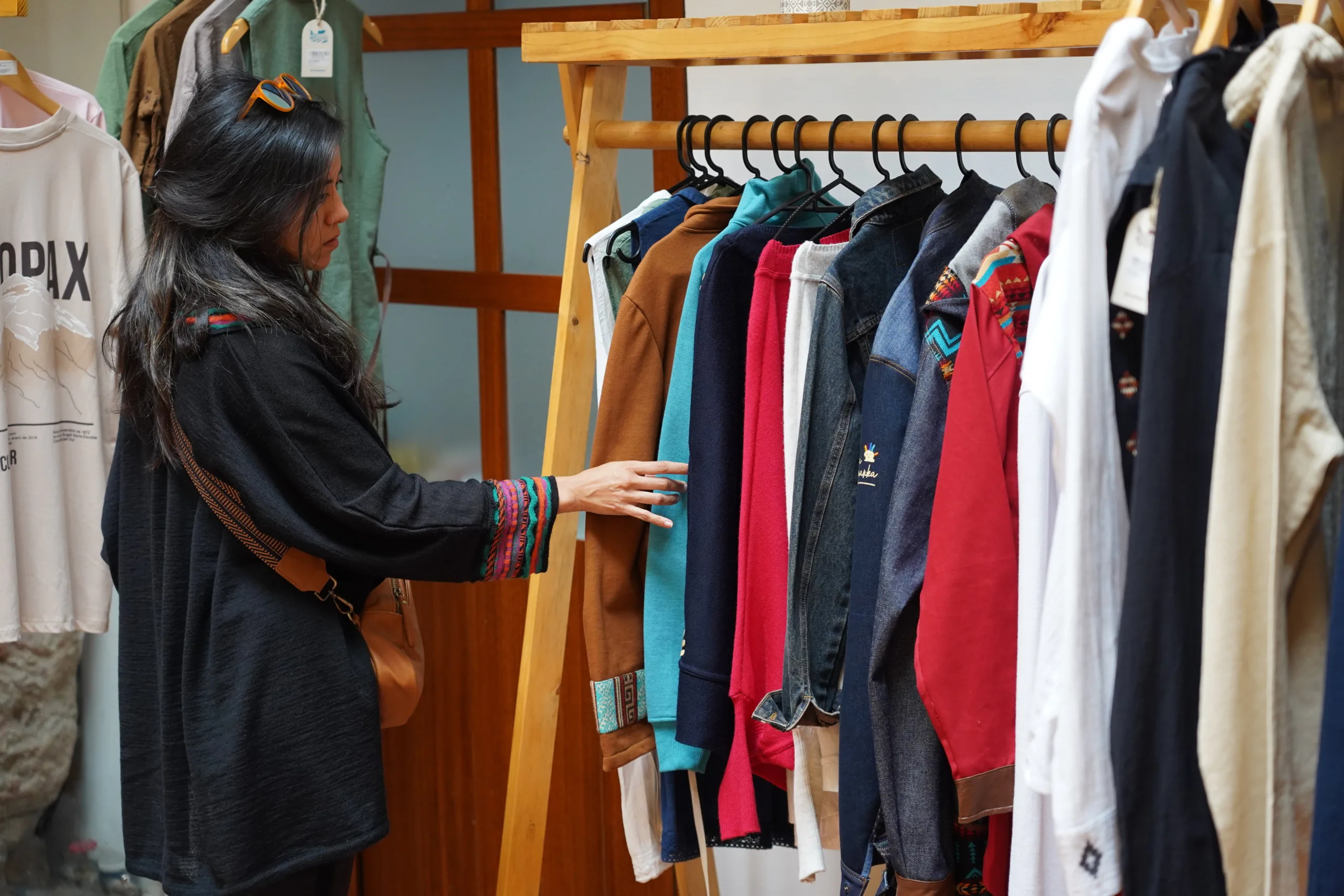
Beautiful and unique clothes from artisans make it difficult to make a choice.
Casa Yangoe opened for business in 2021, right in the middle of the Covid pandemic. The name, Yangoe, means “Hug.” It comes from the Huaorani people, who have lived as forest hunters and gatherers in the heart of the Ecuadorian Amazon for hundreds of years.
“It was a bold choice. It was rough at first,” said Arias. “In the last year, business has really picked up because the tourists have returned. There has been a huge change in just one year.”
The tourists have really helped, but Arias says their most loyal customers are the foreigners who live in Cuenca.
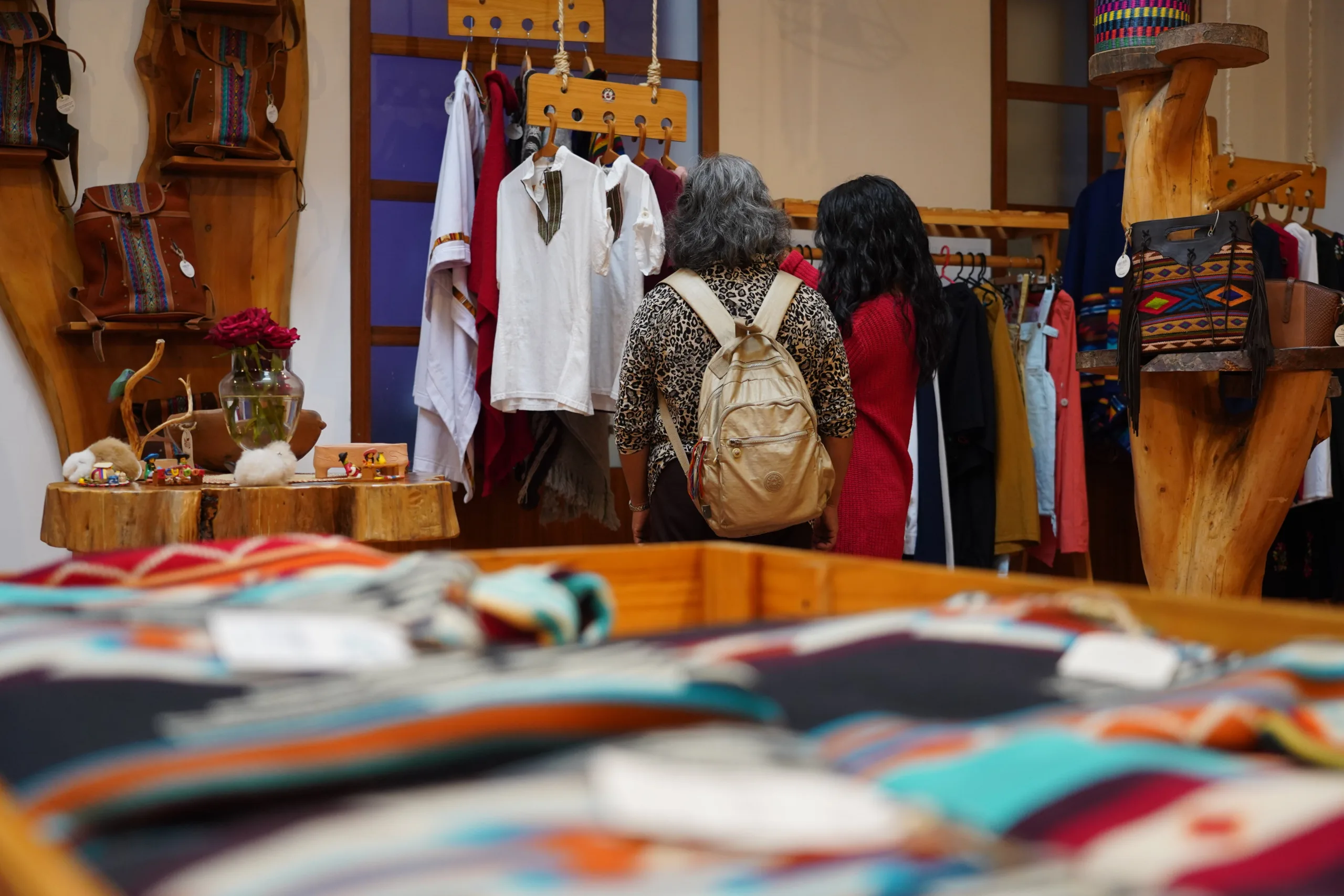
The front of Casa Yangoe is full of artisan products and clothing.
“Americans in Cuenca are very willing to pay the price for our organic foods,” said Arias.
According to the U.S. Department of Agriculture (USDA), there are several standards food products must meet in order to receive an organic label. They must be produced without conventional pesticides, synthetic fertilizers, bioengineering, sewage byproducts, or ionizing radiation. Conventional foods aren’t held to any of these standards.
Each year, the Environmental Working Group (EWG), a U.S. nonprofit organization, releases a shopper’s guide to pesticides in fruits and vegetables with the highest and lowest pesticide residues. The produce is tested after it’s bought at the grocery store and washed.
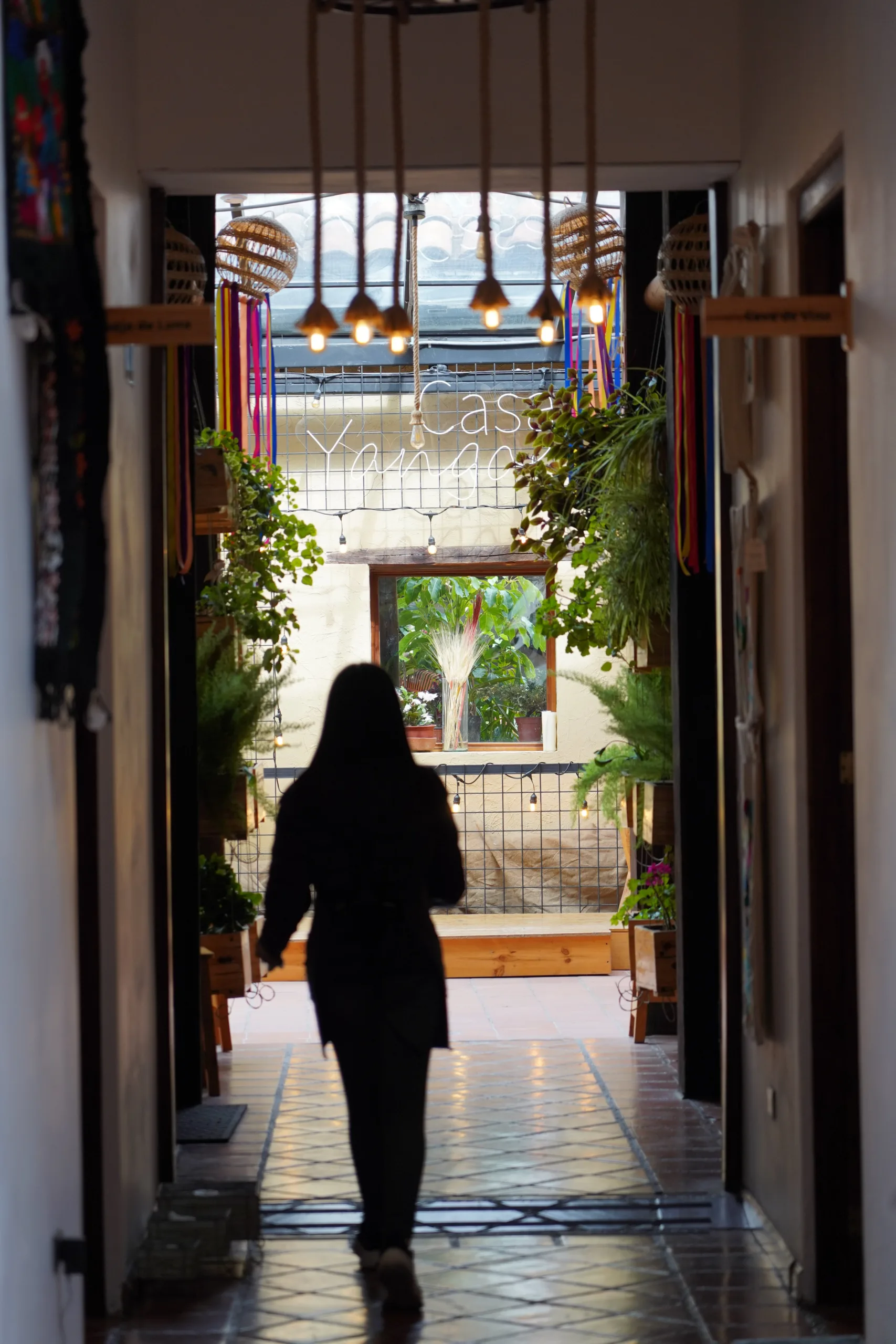
The corridor to the back of Casa Yangoe entices you to eat, drink, and relax.
Last year, EWG found the following conventional food items in the United States to have a high concentration of pesticides:
Apples
Bell Peppers and Hot Peppers
Blueberries
Cherries
Collards, Kale, and Mustard Greens
Grapes
Green Beans
Nectarines
Peaches
Pears
Spinach
Strawberries
More than 90 percent of the apples, cherries, grapes, nectarines, spinach, and strawberries tested positive for residues of two or more pesticides. EWG found a total of 210 pesticides on those dozen items.
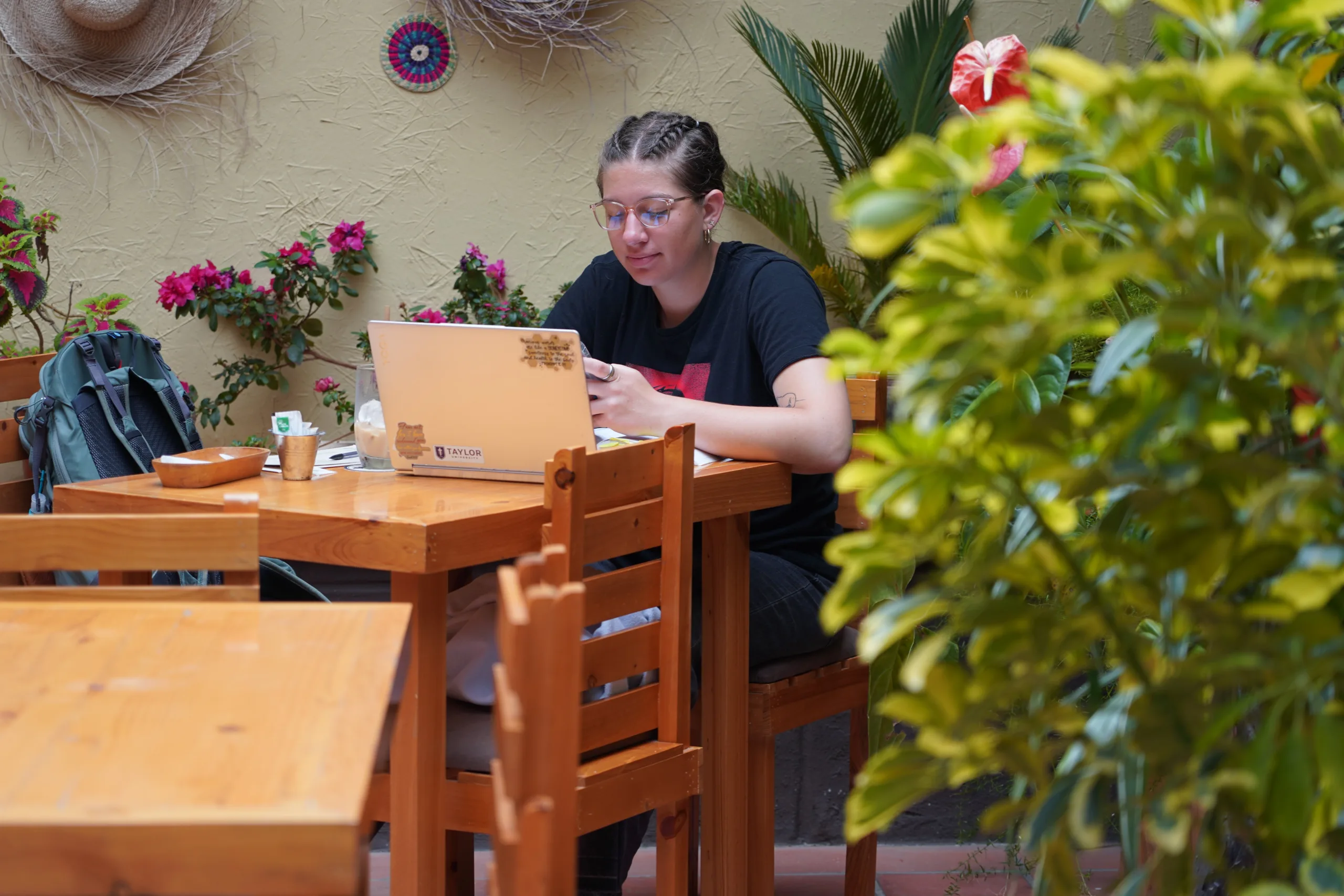
Many customers have a drink or two and maybe some food while doing their work in the lush eating area of Casa Yangoe.
A growing number of people worldwide feel organic food is purer and has higher nutritional value.
Because of that, research from BlueWeave Consulting, an Indian market research company, predicts the organic food market will grow at an annual rate of 8.7 percent. At this rate, the market will be worth more than $95 billion by 2027.
By comparison, the overall food industry is expected to grow by 3.8 percent annually through 2027.
Organic food typically costs more than conventional food. It is generally more expensive due to the higher cost of production, certification, and smaller scale of farming.
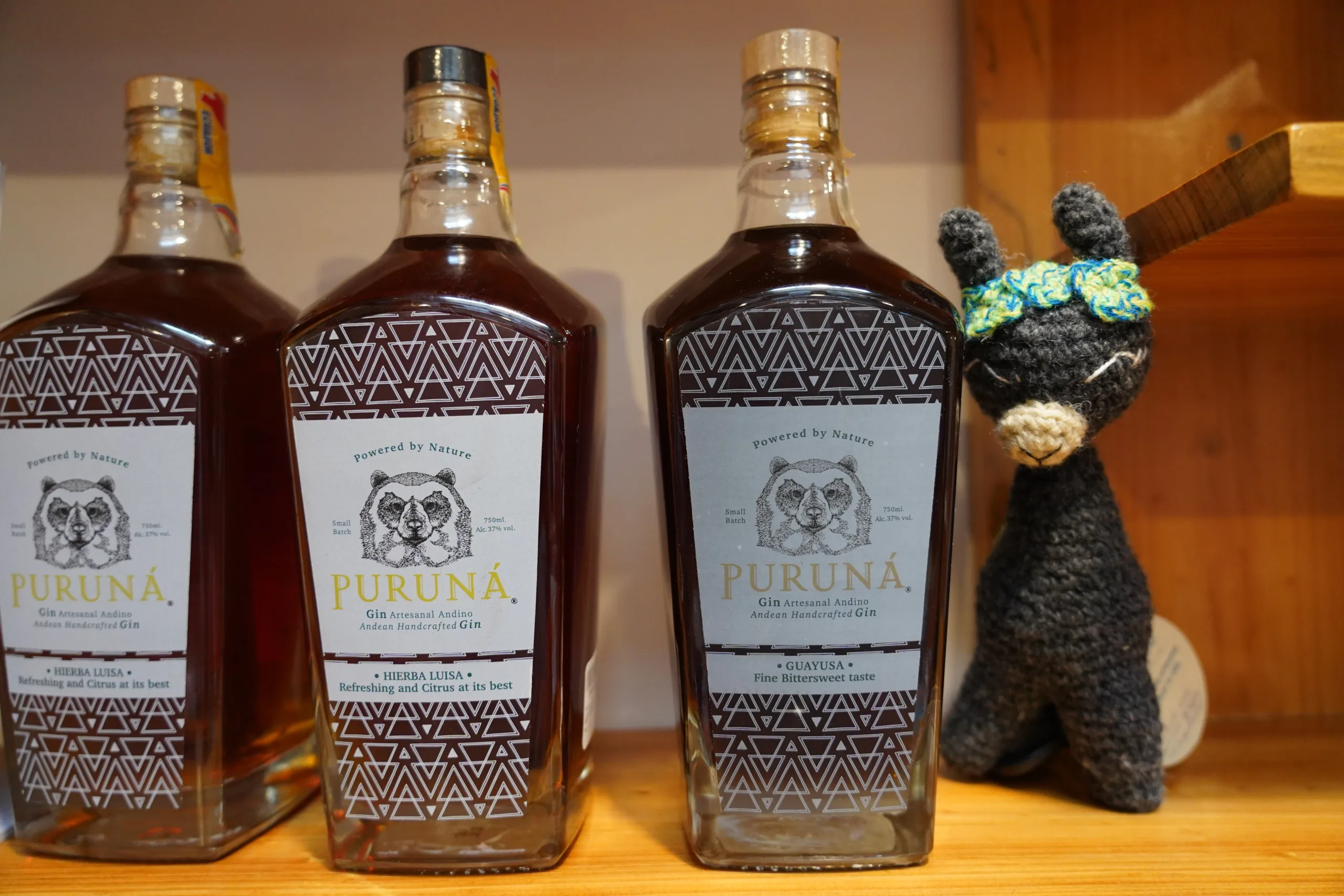
Puruná Gin, made by infusing juniper berries and a blend of natural local botanicals, is produced by hand, in small batches in Quito. It is 100 percent natural.
“It costs $2,500 for each of our farm’s food products to get the organic certification every year,” said Arias.
CNET did a study of food prices last year in the U.S. and it found organic groceries were about 21 percent more expensive than nonorganic, but only about 10 percent higher if meat was excluded from the list.
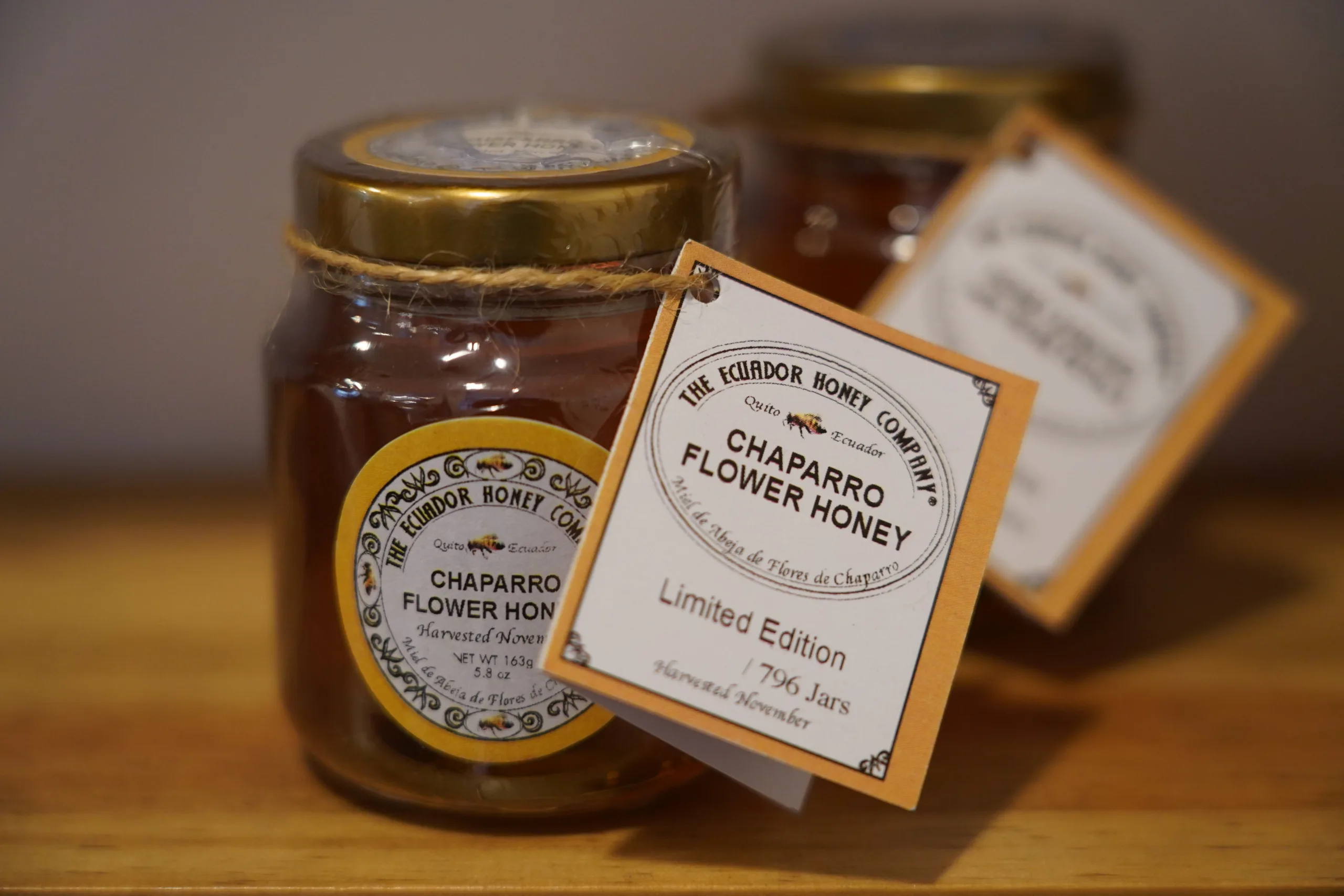
Artisan honey from Pichincha province is available at Casa Yangoe.
“Our markup is very small said,” Arias. “Our live performances help keep the prices down.”
Live performances are Friday nights in the eating area of Casa Yangoe. There are tables in the back of the building as well as outside overlooking a small garden area.
Groups that have recently played or are scheduled to play very soon at Casa Yangoe include Los Criollos Band, Trio Don Añejos, Giro Rot Band, Dulce Cacao, and Enigma Blues Band.
Everything on their menu is organic.
“The aim is to have local farmers provide us organic foods,” said Arias.
Casa Yangoe wants to bring in a chef, so everything is made fresh there. Currently, one can enjoy a Chicken Burrito, Lomo Saltado, Chicken Teriyaki, or a Caesar Salad.
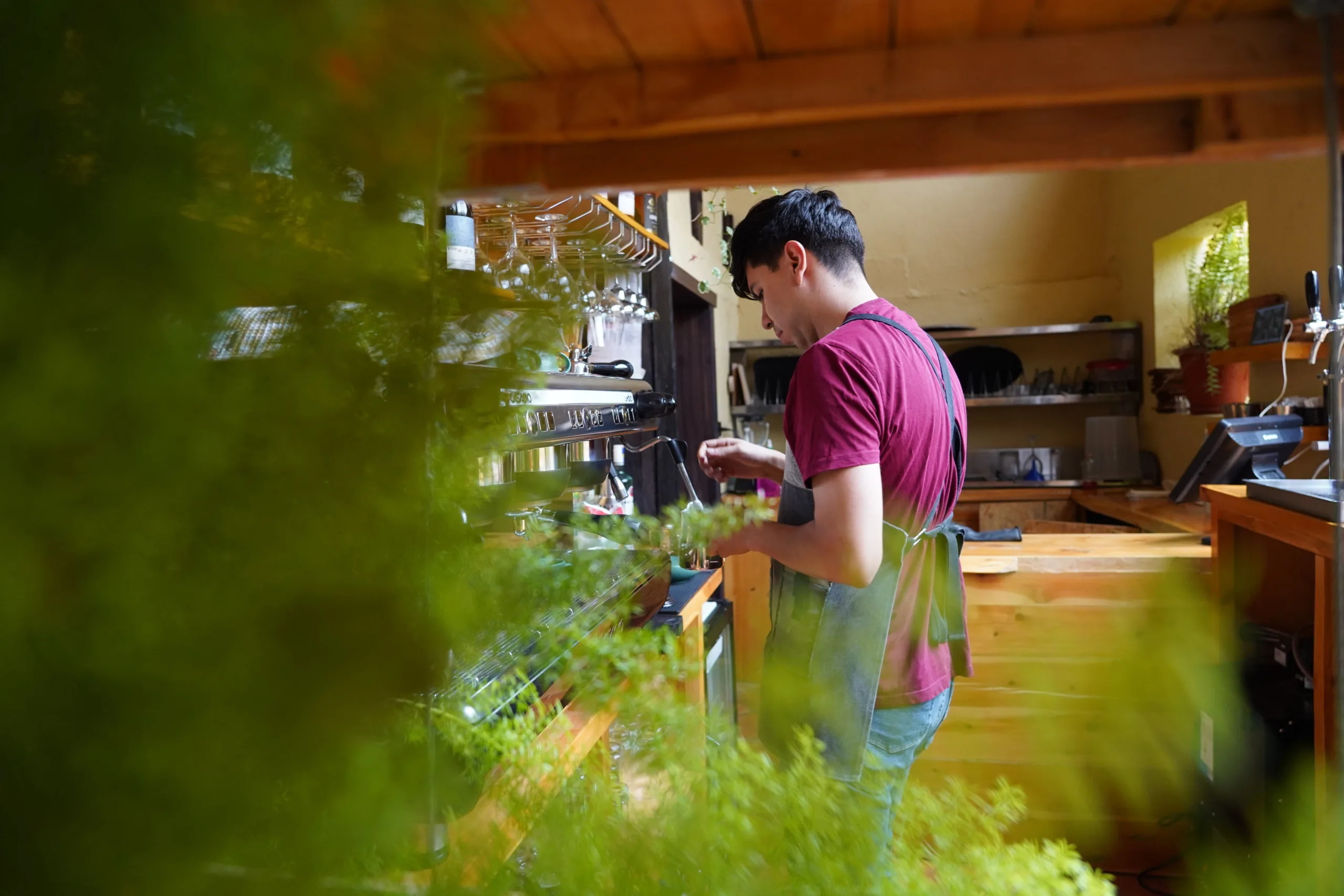
Casa Yangoe plans to expand their kitchen and to hire a chef in the near future.
Sandwiches include Pork, Chicken, House Avocado, and Beef Tenderloin in a Mushroom Sauce. There are some good vegetarian and dairy options, too.
Their unique ice cream is made by them. By far the favorite at Casa Yangoe is an avocado ice cream with a cacao syrup. The avocados come from the family farm.
“We also have rose ice cream,” said Arias. “It is made here.”
His brother, David, came up with the ice cream ideas as well as their favorite non-alcoholic drink.
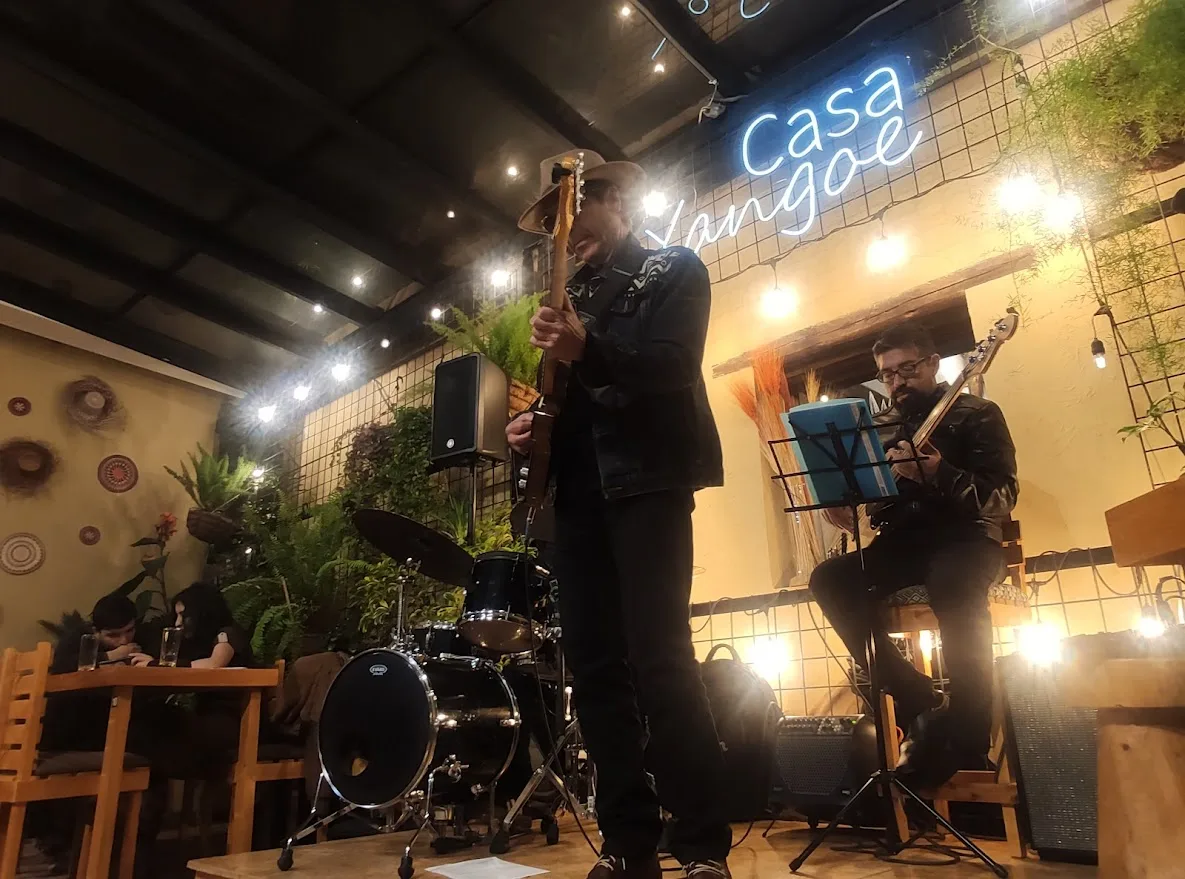
Live performances are held every Friday night. The lineup of musicians is varied.
“Kids love our Limonada with basil. Adults do, too,” said Arias. “David thought it would be a great to add some basil for a different version of the drink.”
The restaurant does not use any plastics or chemicals. The environment is perfect for a place to relax.
Up front is the store. It is broken up into two distinct areas. The portion in the middle of the store is dedicated to organic foods, wines, and beers.
Casa Yangoe has organic wines from Chile and Argentina, including a highly rated Malbec from Zuccardi. In the 2020 World’s Best Vineyards Awards, the top spot went to this winery in Mendoza.
Sitting in the coolers are several types of craft beer from Loop Brewing Project, in Cununyacu-Quito. That includes an IPA (7% ABV) that Arias says Americans love.
One of the goals of Casa Yangoe is to sell Ecuadorian products. That includes Puruná Gin, made by infusing juniper berries and a blend of natural local botanicals. It is produced by hand, in small batches in Quito. The Ecuadorian gin is 100 percent natural because no chemicals have been added.
With every purchase of Puruná Gin, the Quito company donates money to support the conservation of the natural habitat of the Spectacled Bear (also known as the Andean Bear).
Artisans from across the country are well-represented at Casa Yangoe.
“We want to make artisans visible at Casa Yangoe,” said Arias.
Beautiful clothing, hats, pottery, and artwork from around the country are for sale.
You will find products from places such as Textiles Comunidad la Esperanza (Imbabura province), Artesanias de Tagu Familia Quishpe (Esmeraldas province), and Ollas de Barro Familia Loor (Manabí province). The list keeps expanding.
With so much being offered, Arias hopes his casa can be your home away from home.
“Un abrazo a la vida,” said Arias. “A hug to life.”
_________________
Casa Yangoe, Benigno Malo 508 y Calle Larga, Cuenca, 096-832-4006 (WhatsApp), https://www.casayangoe.com/, https://www.facebook.com/CasaYangoe/?locale=es_LA, Hours: Monday-Thursday: 9 a.m. to 8 p.m., Friday: 9 a.m. to 11 p.m., Saturday: 9 a.m. to 8 p.m.
Photos by Stephen Vargha
Stephen Vargha’s book about Cuenca, “Una Nueva Vida – A New Life” is available at Amazon in digital and paperback formats. His award-winning blog, “Becoming Cuenca,” supplements his book with the latest information and hundreds of professional photos by him.





















